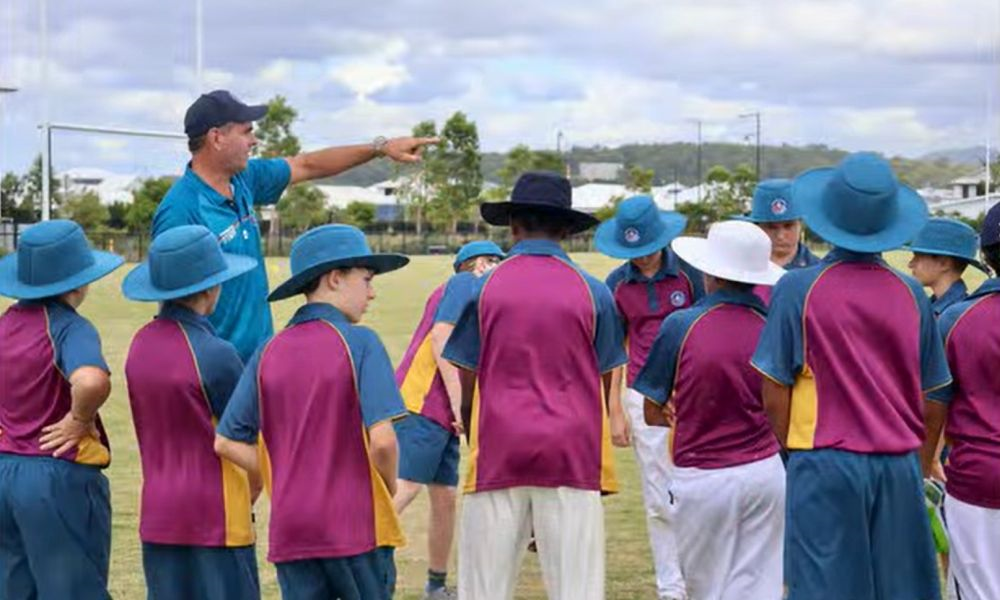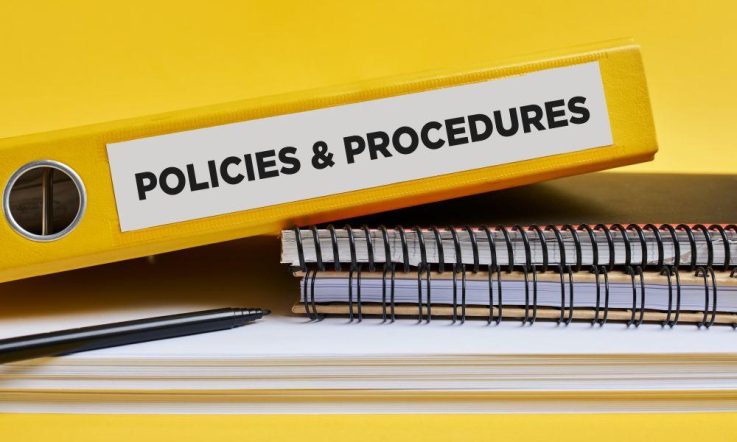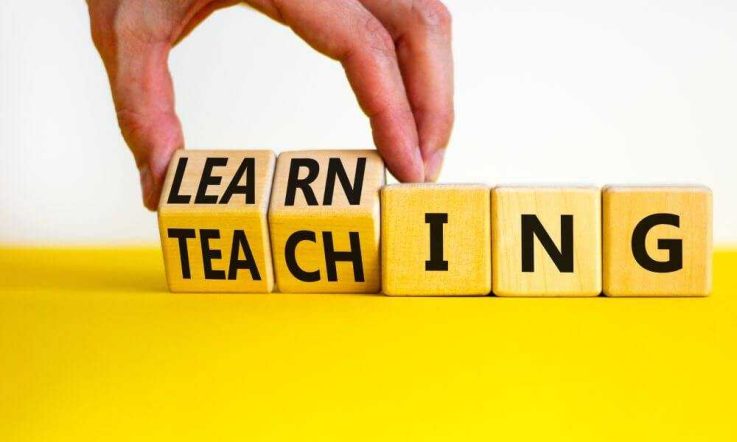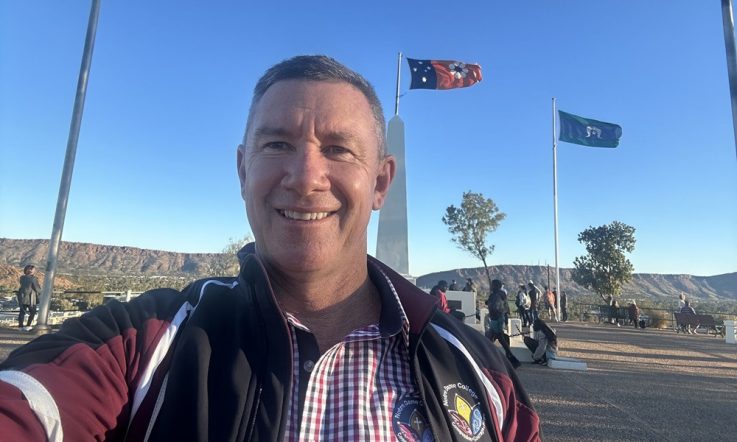This podcast from Teacher is supported by Monash University. Check out Season 3 of their podcast ‘Let’s Talk Teaching’ and join the conversation with leading academics in teacher education.
Hello, thanks for joining me for this Teacher podcast – I’m Jo Earp. School Assembly is the series where we find out what it takes to build a new school from scratch. This is Series 3 and we’ve been following Dan McShea from Notre Dame P-12 College on Queensland’s Sunshine Coast for nearly 12 months now. Term 1 is behind us (and of course that included the big school opening), but Dan and the team now, they’re well into Term 2. Last time out we talked about getting school policies and procedures in place. The topic for Episode 9 is professional learning. Dan will be sharing how that all links back to strategic planning, and those key documents on teaching and learning. As usual, we’ll also find out his biggest challenge, key learning and proudest achievement since we caught up last. I hope you enjoy the episode!
Jo Earp: Hi, Dan great to speak to you again. We've made it to the end of the first term; that's gone, the second one's already up and running fast as anything, and that went so quickly, didn't it?
Dan McShea: Yeah, it did. It flew honestly. And yeah, we look back and you can see that, gee, we can jam a lot into 10 weeks. We've got a video actually of some of the highlights and yeah, a lot of energy's gone into that and it was a wonderful term, and I wouldn't change too many things. So, we were very grateful for that opportunity.
JE: So, on with term 2, then. Today we're going to be talking about supporting the professional learning needs of staff. And I also wanted to have a chat about your own learning as a leader. Our own learning is such an important part of helping students to achieve their goals, obviously. Tell me about the situation you've currently got at the college. Do you have a professional learning leader or an equivalent kind of role?
DM: Well, you know, we don't at the moment. Absolutely we place a tremendously high value on the professional learning needs of our staff. However, with such a small group of staff as our school’s quite small, we don't have a dedicated role to that. So, we have a team that certainly has different strengths and capabilities that they bring to that space, but it really is a collective team effort.
One of the things that we did have the time to bring together – I’ve spoken to before in this podcast – is our Notre Dame Education Strategy. And that's really our playbook for, you know, what our beliefs are about learning and learners, and that's got a corresponding teacher and student commitment. And we do have a ‘look fors’ document for teachers and for walkthroughs in classroom that also aligns with that strategy. So that's been a collective effort. And one day, as we have the capacity to have a have a staff dedicated that role, that would be something I'd certainly look at, but not at the moment.
JE: Yeah. And that's part of the thing, isn't it, with this podcast with setting up a new school, that's one of those things. You've got certain roles that you just don't have at the beginning and that's an evolution, isn't it? That evolves over time. So, that's interesting to hear as well. And as you said, there's lot to consider there with staff professional learning, including learning from each other. I think, you know, sometimes people look at it as, you know, we go somewhere and we do something, but that learning from each other through observations and reflections is really important. You've mentioned there about the playbook and that's great to hear you've got something specifically looking at student learning and also teacher learning. So, if we think about that whole school professional learning then for a moment – or your whole team (because it's not, you know, not the same as maybe a school has been up and running for several years) – what are those strategic priorities for this year and how does that whole school or professional learning model fit into that? You're talking about making it explicit within that playbook; what are those priorities for this year?
DM: Firstly, you know, the staff that we were able to recruit for our first year really need to be high quality and, you know, they have to pedal pretty hard, they have to bring a lot of energy and expertise, and probably most importantly they have to be adaptable and willing to collaborate. And so, you know, they need to get direction, certainly, and that's where the playbook comes in. But those staff really have an opportunity and a responsibility to really be the gatekeepers of the culture of the school and set it up.
And so, we've really tried to give our staff as much time as we can. We've tried to be really collaborative with them, we've tried to be really transparent about where we're heading with our professional learning, and that's where that educational strategy has been really valuable because we're not shifting goal posts all the time. We've got this playbook – it's got 12 commitments, it's got 12 beliefs about learning and learners – and that's our focus, and we asked them right at the start where they felt they we're really strong and where they felt they needed the most support. And we've also asked them to view our meeting times as our greatest mechanism for professional growth.
So, you know, this is nothing new and nothing that lots of other places aren’t doing. But we've got staff sharing best practice regularly in those meetings. We've got staff leading different aspects and showing what their planning looks like, showing how they approach their pedagogy. And we've also buddied them up with another person cross-phase; so, the prep teacher might be with the middle leader of Humanities. And it’s, honestly, it's so wonderful when you accidentally catch them observing each other and engaging in professional conversations with each other, in each other's classroom. So that's certainly happening.
In terms of our strategic goals for this year, they're really simple. They're operationalising that educational plan – that's our pedagogy, that's our way of working. And the second one is our Culture document, which is our alignment of our charism, which has 5 characteristics and under each of those 5 there's 5 aspirational ‘we will’ statements that we call our Notre Dame Way, and that's for the students and for our families and for our staff. We use that in onboarding of our staff, we use that in all of our awards. And so those 2 things – the educational strategy and that way of working and being document – are our 2 goals for this year, operationalising them.
JE: And it's really important what you were saying right at the beginning of that answer about figuring out where the staff are at. So, I was thinking, you know (and we've said this before), as with students then an important part of that progress to make progress, you need to know where you're at to start with, right, and what the next steps are, where the gaps are, knowing what experiences and knowledge and expertise that you bring to that. And like I say, having a think about what are the gaps, what are the next steps. And that's obviously the same with staff, isn't it? And some of that will have come in the initial hiring stage, wouldn't it. And then you're just talking now about, you're inviting them to, you know, ‘This is where I feel like my gaps are. This is where I feel like I'm really strong…’ You need to build that picture, don't you.
DM: 100%, and then we're all on the same page. [And you know] in saying that the staff need to be really high quality, it doesn't mean they're all experienced. We’ve got 3 graduates here and they're all wonderful and they're in a really conducive environment, and mentors for them to really flourish and I think that's a great start for their teaching career.
But the part that you don't know is your students. You know, they've had an enrolment meeting, we've seen their previous report cards (which all say different things in different ways) and there's a lot of mysteries in the students, because we don't have any data about them up until the start of the year. And so, every time a new piece of data comes in about our students, like preliminary NAPLAN data this week, we're excited to engage with that because that tells a new story about, you know: What are we doing? What are we going to do about that? And where do we go next.
You’re listening to a podcast from Teacher magazine, supported by Monash University's Faculty of Education. Listen to their podcast ‘Let’s Talk Teaching’, hosted by former teacher, Associate Professor Rebecca Cooper, as she invites teachers and alumni with a range of educational backgrounds and experiences to share their insights and discuss practical topics to help you develop and grow as a teacher. Season 3 is available now.
JE: So, in the last episode, then, you mentioned – I'm going to take it back to what you said – how time is the big challenge, right, in lots of things around leading the school, and we know that. Professional learning takes up massive chunks of time. We know it's a great investment (we know that) in terms of the time and resources. But how do you as a leader, particularly in such a small team, juggle that? And also, what about opportunities outside the school? We've talked about that sort of mentoring aspect, learning from each other. What about things like conferences, workshops and things that take place outside school time, how do you actually juggle all of that?
DM: Look, a lot of the strategic big picture strategy work around setting up our strategies and policies and procedures we were fortunate to have completed last year in preparation for this year. And so, you know, if there's an occasion that will … as we plan out our professional development as the staff meeting and the professional development days we would make sure that those, the focus of those, aligns with those priorities in the 2 documents that I mentioned earlier.
If a staff member needed to be, or we felt that it was beneficial for them to increase their capacity in some of those areas, then, yeah, absolutely we would support them to attend, you know, whatever suitable professional development that was. And you know, there's also this whole Catholic identity space for us too in our context which certainly requires a lot of staff formation, and there's regular opportunities for our staff to engage in that spiritual dimension as well. Yeah, we’ve got to use our time well.
JE: Yeah. As we've said before, it's really important then, isn't it, if you are short on time and you are making that investment that it's achieving what you want it to achieve. It's linked back to those core parts of the school, those core beliefs, what you're trying to achieve, your strategic planning, and being really explicit, isn't it, as a leader … what use it is for this team, for this school, for our beliefs.
DM: Absolutely. It's got to align with our beliefs about learning and learners, or our Notre Dame Way. You know, if someone's just interested in basket weaving, you know, we're not interested in that. We want to make sure that we're on the same page, especially while we can, and while we're small, and while we've got this opportunity to galvanise our culture.
JE: I mean, I should also point out that a lot of that learning from each other and expertise and mentoring takes place in a very informal environment as well. There'll be so many fantastic conversations and learning opportunities that are organic, aren't there, as you go throughout the school day.
DM: Yeah, definitely. And you know that's that old cliche, the greatest professional development is the teacher down the hallway. And you know, as much as we've heard that before, it's so true. So, if we can create that opportunity for those professional conversations to authentically happen and allow some time for them to happen, then it's so rich. You have a greater appreciation for the work of each other, and you see yourself always contributing to that. And, you know, absolutely the prep teacher can learn from the year 7 English teacher and vice versa, in so many ways.
JE: Yeah, and I love that thing of, you know, not being siloed – that we are working across subjects, year levels, whatever, whatever. When you're the principal, then, you're involved in those in school learning activities, but also, you've got lots of learning commitments at a system level, at a higher level. I'm always interested how that works for a principal – who's the kind of, the leader doing those individual supports for you? How does that work in your system currently?
DM: Oh, look, that's a hard question to answer because my work here this year during the school day is, you know, really about being as present as I can to this community while we're so small and still establishing routines and getting to know people. So, a lot of the ‘balcony’ sort of view isn't being taken throughout the school day, you've got to find that somewhere else. The expertise in the team that I've built around me complements the gaps that I have; so, I'm not an early years literacy expert, and I wouldn't hire myself as a primary school teacher in our context.
So, we've got to have a team that complements each other, and different people bring incredible gifts and expertise in the gaps that I have. And we have a good system that collaborates well amongst our colleagues where we always look to support each other. So yeah, I'm learning every day. You know, a lot of my work also is around building next stages and enrolments and thinking about recruiting for next year, but I've still got to be excited about the milestones of a prep child learning to read or a year 7 student that's transitioning into our place.
JE: But then outside of that, you may have those extra commitments for principals, I’m thinking more at a principal level, you go into like … I don't know, a professional learning day where your fellow principals are there and you're all sort of learning at the same time; is that basically what kind of thing would be on your schedule?
DM: Yeah, a lot can tend to become quite compliance focused, Jo. I think you've got to find that yourself a little bit. Certainly, there is opportunities to collaborate, there is professional development that we have access to. My team typically tries to read a book, the same book at the same time, which we’ll sort of take turns choosing; that's really helpful. There's some principal support groups here on the Sunshine Coast in our sector and cross-sector with independent schools, that meet regularly, so there's plenty of avenues. But yeah, you've got to take responsibility for your own and be interested in professional learning. Ange, she’s one of our APs, is really engaged with all the latest [research and literature] and she's very good at keeping me up to speed with an executive sort of summary of what's come out and the ‘so what?’ for our school.
JE: That's good to hear. OK then, we've reached the 3 questions that we always end the episode on you'll be pleased to hear! You've got key learning, biggest challenge, proudest achievement since we last spoke, and it's been quite a while actually.
DM: Oh, key learning is look you know I mentioned we're probably on the dance floor a little bit too much and we're conscious of that. And you know, we need to get up on the balcony a bit more as well. I mean, that's really good to be really present to your community and to establish those relationships, but we can't forget about what's ahead in 6 months and in 3 years’ time. So, we've got to find that sweet spot, I guess.
The biggest challenge? Biggest challenge for me at the moment is time, Jo. Like even you know, even to push this meeting today, I'm sorry about that. But you know, we're always peddling, and I love that, but you know the days go really quickly and Monday turns to Friday really quickly for all of us, and the lists keep getting bigger.
My proudest moment – I surveyed our year 7s yesterday because I just wanted to get a sense of how they're going, and I had a couple of questions that I needed to ask them for a future decision. And one of the boys wrote ‘my biggest highlight at Notre Dame is the difference between how I am now and how I was before I started at this school’. And I thought, wow, that's amazing. There's some good stuff happening here and I'm really proud of that.
What a lovely note to end on! That’s all for this episode –my thanks to Dan up in Queensland and thanks for joining me, wherever you are. If you want to keep listening there are more than 300 episodes from the last 11 years of Teacher magazine podcasts to choose from, including our Research Files series, Behaviour Management and School Improvement. Find those wherever you get your podcasts from. Hit the follow button to make sure you don’t miss out on new episodes. And please leave a rating and a review while you’re there. Bye!
You’ve been listening to a podcast from Teacher, supported by Monash University. Listen to their ‘Let’s Talk Teaching’ podcast for valuable strategies and insights on the challenges teachers face today.
Other episodes in Series 3:
- Episode 1: Meet our Series 3 principal
- Episode 2: Growing student enrolments
- Episode 3: Crafting a school vision and mission statement
- Episode 4: Leading a new school
- Episode 5: From building site to finished school
- Episode 6: Setting the teaching direction and a Series 1 and 2 update
- Episode 7: The first day of school
- Episode 8: Getting your policies and procedures in place
As a school leader, how does your professional learning planning link back to your strategic goals for teaching and learning? What are your professional learning priorities for the next 12 months? How often do you discuss these with staff?



